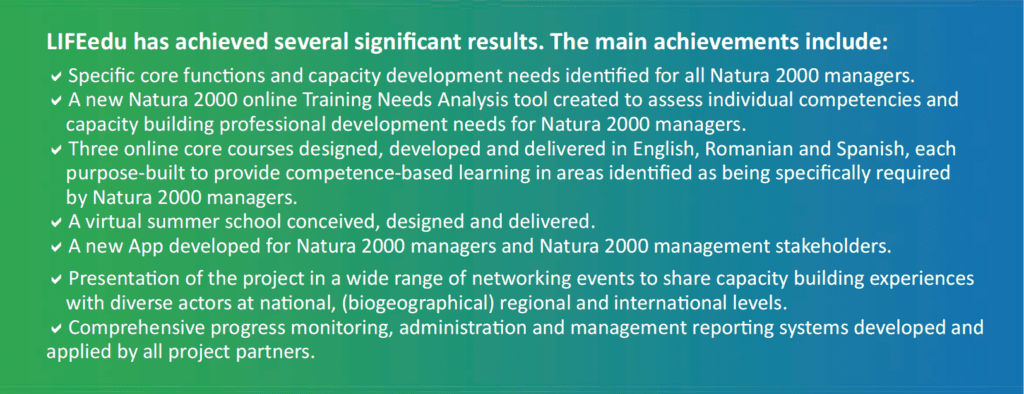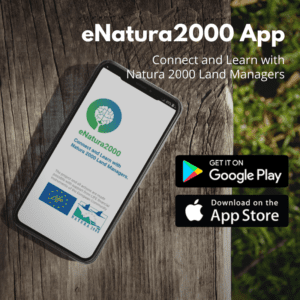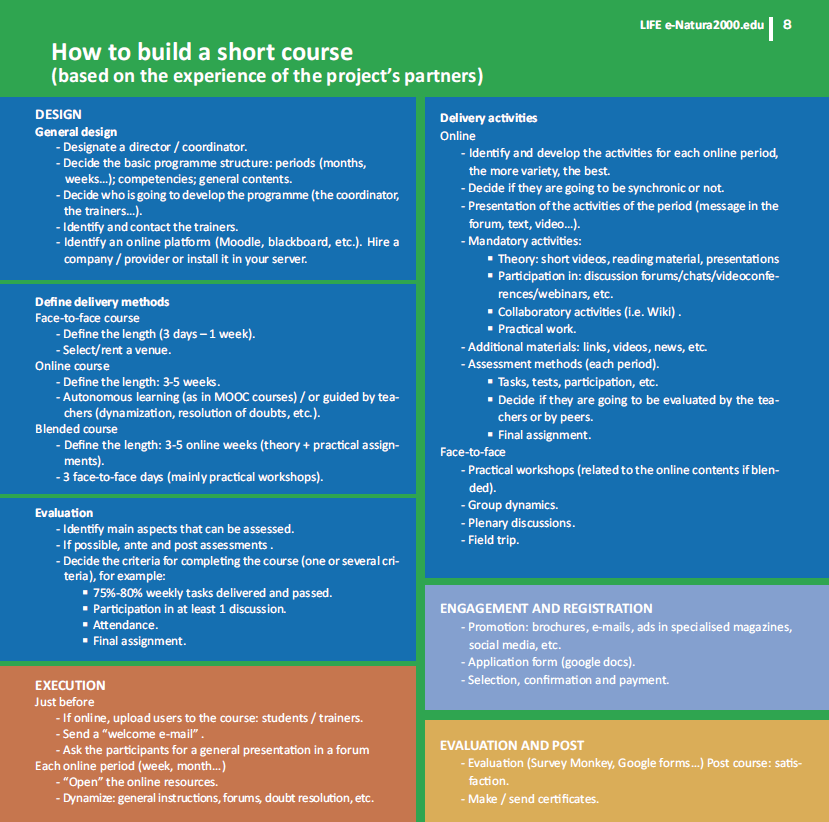LIFE e-Natura2000.edu: Guidelines for replicability – summary edition
Over three years, six European partners have worked together to design and test new approaches to build and develop the capacities of Natura 2000 professionals.
From this experience, the main conclusions and recommendations for future competence-based learning initiatives are shared in this summary.
About the project
LIFE e-Natura2000.edu ran from April 2018 to July 2021. During that time, the project’s partners explored the potential of developing new approaches and integrating innovative learning methods to improve knowledge and capacity amongst Natura 2000 managers in both public and private land. The main aim of the project was to produce and test a flexible mix of blended learning tools and methods, designed to build and develop the capacity required for effective Natura 2000 management practices.

Knowing the training needs
The Training Needs Assessment (TNA) tool developed by LIFEedu is designed to help individual Natura 2000 managers to self-assess their competencies and training needs: they can use the results to learn about their priority capacity development needs and to better plan their future professional development actions.
In addition, two specific actions were implemented to explore various means of broadening the circle of officers, managers, professionals, stakeholders, and landowners potentially involved in the project: a specific Smartphone App and a university-based Virtual Summer
School.

eNatura2000 App
The app is available on Google Play and App Store! DOWNLOAD IT NOW!
Delivering the courses
The project’s competence-based approach was based on identifying and assessing those competencies specifically required for the effective management of Natura2000 sites and projects. This was used to inform the development of tailor-made courses and their content, which were central to the project’s objectives and its implementation:
- Course I, Applied Conservation Biology, led by Propark and addressed mainly to Romanian Natura 2000 managers (in Romanian).
- Course II, Building Alliances for Natura 2000 Management, led by FUNGOBE and addressed mainly to Spanish Natura 2000 managers (in Spanish).
- Course III, Competent Inclusive Communication, led by EUROPARC and pan European in its scope (in English).
Capacity building is about building the professional capacity of people by encouraging them to engage themselves in a lifelong learning process by using diverse learning modes.
Take a look at a brief guide on how to build a short course:

As a LIFE Preparatory project, a key goal for LIFEedu was to make its methods and results available to all interested in ways to improve the effectiveness of Natura 2000 management. To this end, a large number of networking actions, both formal and informal, have been completed throughout the project in local, national and international forums. Special attention was also given to the production of a consistent set of reporting deliverables, which guarantee that detailed and coherent information on all actions and results is available for future reference.
LIFEedu has evidenced the opportunities and merits of developing dedicated capacity building programmes, tailored for Natura 2000 professionals and designed to support the achievement of EU priorities for nature. As a direct outcome of the project, the value of creating continuous professional development programmes directly linked to EU priorities for nature has been demonstrated.
You can download the summary version of Guidelines for replicability here: LIFEedu Summary Replicability Guidelines
and the full version here: Guidelines for replicability and recommendations for future capacity building
